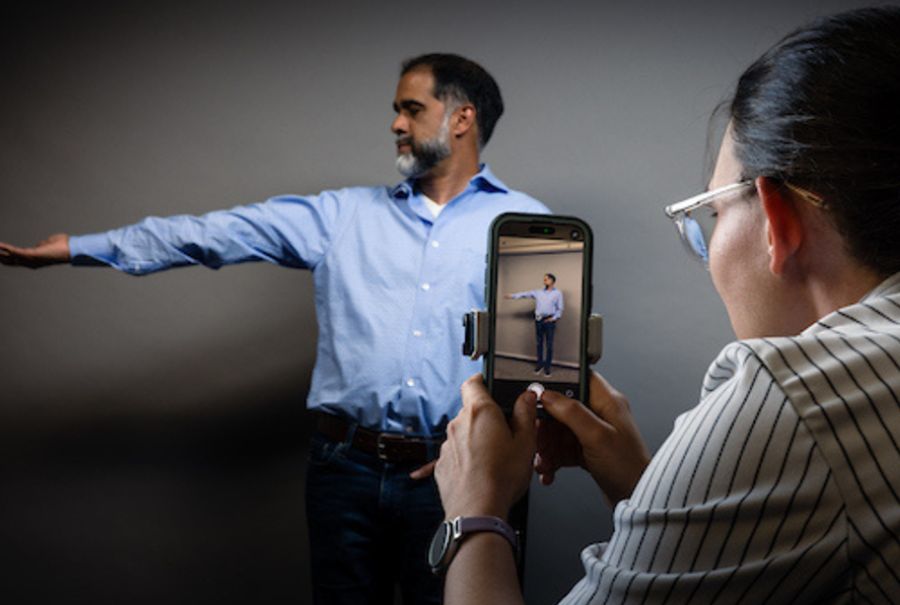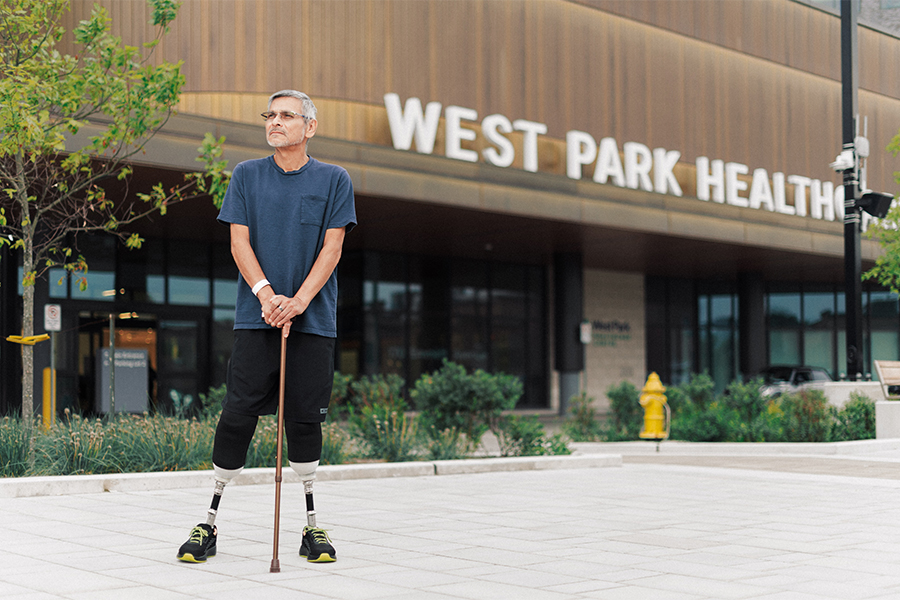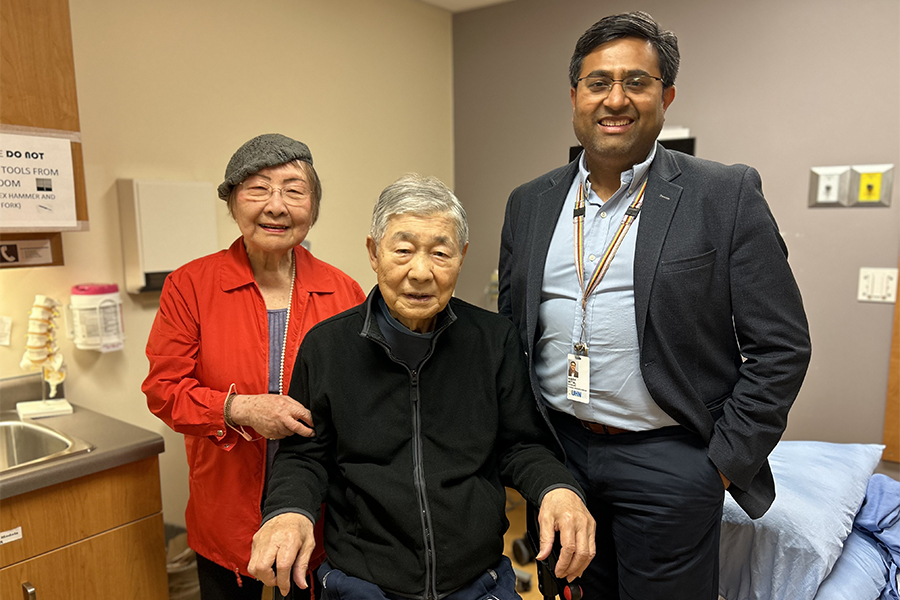(L to R) Nevena Musikic, Kramay Patel, Dr. Jennifer Campos and Anna Huynh are all part of the trainee program at UHN’s KITE Research Institute, where up-and-coming researchers are given the opportunity to do ground-breaking work. Dr. Campos oversees the program. (Photo: The KITE Research Institute)
Dr. Jennifer Campos knows it’s her job to support a very special group. She oversees some of the world’s most accomplished scientific trainees, who are all devoted to furthering rehabilitation research that will improve the lives of aging Canadians and those who have experienced an illness or injury.
“The calibre of KITE trainees is extremely high,” says Dr. Campos, Canada Research Chair in Multisensory Integration and Aging, and the Chief Scientist of the Challenging Environment Assessment Laboratory at UHN’s KITE Research Institute. “And it’s truly unique and exceptionally valuable to have trainees from so many different and complementary disciplines working together and learning from each other under one roof.”
KITE, the research arm of the Toronto Rehabilitation Institute, is truly interdisciplinary. Scientific trainees include biomedical engineers, computer scientists, kinesiologists, psychologists, health policy researchers and nurses, leading to unique collaborations not often possible at other academic institutions, she explains.
KITE’s trainee program gives people the power to solve rehabilitation challenges by developing innovative approaches to prevention, diagnostics and therapeutics, and improving quality of life for older adults.
Here are the stories of three trainees who are developing leading-edge research right now.
Giving voice to people with ALS
As a person who stutters, second-year PhD student Anna Huynh knows how challenging communication can be. It’s one of the reasons why she wants to develop better ways of assessing the speech of patients with amyotrophic lateral sclerosis (ALS) – and determining the speed at which their disease is progressing.
Anna hopes to create practical tools for clinicians so that people with ALS can receive earlier support around communication and swallowing. Current assessments, she says, are not sensitive enough at detecting changes in the muscles that control speech and swallowing – leaving patients without adequate support.
“As a result, some people are living their lives and they can’t share their thoughts and opinions,” Anna explains. “They can also choke on food or water and develop aspirational pneumonia.
“Having proper assessments is important to inform clinicians as to what to do next.”
To that end, she and her team are in the process of finessing a new, more-sensitive method of identifying speech and swallowing challenges in patients with ALS by assessing their functioning from different angles to pinpoint any issues. She hopes the tool, which will be used by speech-language pathologists and neurologists when assessing patients, can help people enjoy a better quality of life.
Anna says that her colleagues have been very supportive.
“I was drawn to the people at KITE,” she says. “It makes a difference when you enjoy spending time with the people that you’re working with every day.
“It helps to brainstorm and figure things out together.”


